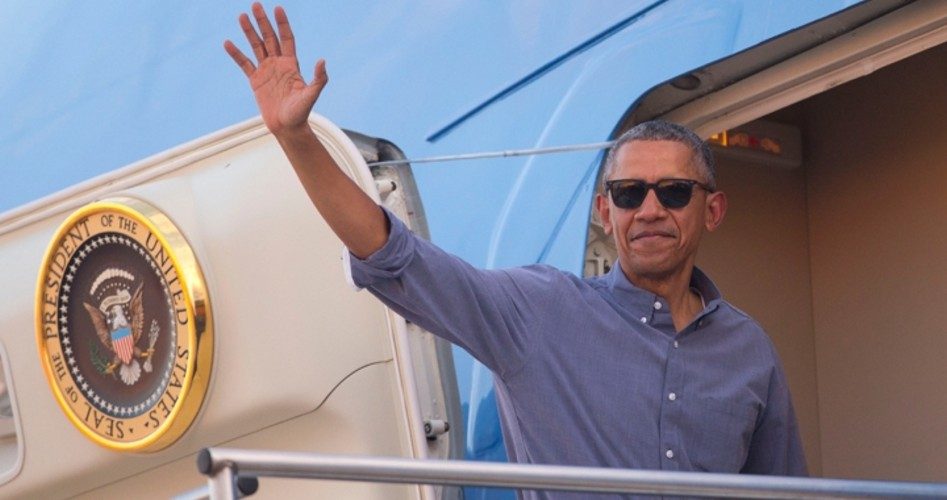
Everything secret degenerates, even the administration of justice; nothing is safe that does not show how it can bear discussion and publicity.
— Lord Acton
President Barack Obama’s administration has clamped down on information about the workings of its various agencies so tightly that they function in almost absolute secrecy.
This is the claim of Justin Elliott, a reporter for ProPublica who penned an op-ed in the Washington Post revealing his recent attempt to force the federal government to release information about FEMA’s (Federal Emergency Management’s) handling of the Hurricane Sandy relief effort.
The specifics of Elliott’s attempt to force the feds to disclose details of FEMA’s Sandy directives expose the lassitude and purposeful stonewalling that have become the habit of the bureaucracy under the Obama administration.
Here is the brief chronicle of the road from Freedom of Information Act (FOIA) request to response from the federal government, as reported by Elliott:
Two years ago last month, I filed a public-records request to the Federal Emergency Management Agency as part of my reporting into the flawed response to Hurricane Sandy. Then, I waited.
The Freedom of Information Act requires a response within 20 business days, but agencies routinely blow that deadline. Eight months later, ProPublica and NPR published our investigation into the Sandy response, but it did not include any documents from FEMA. The agency had simply never gotten back to me.
Finally, this Feb. 10 — 492 business days past the law’s 20-day deadline — I got a curious phone call from FEMA. The agency was starting a “clean search” for the documents I asked for, because the original search “was not done properly.”
To the apparatchiks of the present administration, there exists no authority above themselves, it seems, and a legally submitted order to search for documents from a citizen is no reason to rummage through the files.
For those readers who don’t consider such a story to be that terrible an act of tyranny, Elliot explains the potential chilling effect of such official disregard:
Documents are the lifeblood of investigative journalism, but these problems aren’t of interest only to reporters. The Freedom of Information Act is supposed to deliver on the idea of a government “for and by the people,” whose documents are our documents. The ability to get information from the government is essential to holding the people in power accountable.
The president apparently doesn’t consider his administration accountable to the people.
In fact, as he’s done in the case of whistleblowers, closing the Guantanamo Bay prison, ending the drone war, and dozens of other issues, President Obama seems to have forgotten his promise of presiding over “the most transparent administration in history.”
Before the sun had set on his first day in office, President Obama spoke passionately on the need for official openness. On that occasion he called the FOIA “the most prominent expression of a profound national commitment to ensuring an open Government.” The president’s philosophical commitment to an open government has apparently given way to the stranglehold on information that is the safety of statists.
Elliott reports,
The Associated Press found last year that the administration had set a record for censoring or denying access to information requested under FOIA, and that the backlog of unanswered requests across the government had risen by 55 percent, to more than 200,000.
Statistics as stark as these betray the purpose of the FOIA.
“The basic purpose of FOIA is to ensure an informed citizenry, vital to the functioning of a democratic society, needed to check against corruption and to hold the governors accountable to the governed,” the Supreme Court held in NLRB v. Robbins Tire Co. (1978).
Elliott goes on to chronicle example after example of the Obama administration’s refusal to release documents requested under the procedures promulgated in the FOIA.
Or, as former Supreme Court Justice Louis Brandeis said in an earlier case on official attempts to shroud government actions behind an impenetrable veil of secrecy, “Sunshine is the greatest disinfectant.”
Judging from Elliott’s own experience and the experience of those whose stories he includes in his op-ed, the Obama administration is in urgent need of some serious scrubbing with undiluted industrial-strength cleaner.
So, how did Elliott’s effort to drag FEMA into the sunlight of openness end? He included this summary of the (complete lack of) progress:
When I tried to find out whether anyone had been held responsible for the fiasco, I didn’t find much more transparency. “I cannot discuss any personnel issues, unfortunately,” the spokesman told me.
Has the agency at least set a specific goal for when it will get through its backlog? “Our target is to get these cleared as quickly as possible — I don’t have a date for you.”
As was their habit, our Founding Fathers recognized the threat to liberty posed by governors who placed themselves beyond the reach of the governed: “The liberties of a people never were, nor ever will be, secure, when the transactions of their rulers may be concealed from them,” Patrick Henry wrote.
Thomas Jefferson called information the currency of self-government, adding, “Whenever the people are well-informed, they can be trusted with their government, for whenever things go so far wrong as to attract their notice, they can be relied on to set things right.”
Jefferson’s fellow Virginian and frequent collaborator, James Madison, spoke eloquently on the subject of knowledge and its value in a free society. “A popular government without popular information or the means of acquiring it, is but a prologue to a farce or a tragedy or perhaps both. Knowledge will forever govern ignorance, and a people who mean to be their own governors, must arm themselves with the power knowledge gives,” he said.
Patrick Henry, speaking against a consolidated all-powerful central government, said his opinions would be formed from his study of the formerly free societies of history: “I have but one lamp by which my feet are guided and that is the lamp of experience.”
Jefferson and Madison, also students of history, would have learned the importance of keeping governors accountable to the governed from the writings of ancient Greek and Roman historians.
One of those ancient chroniclers of the decline and fall of Rome, Juvenal, will have the last word on the subject of shining lights on the dark deeds of despots: “Quis custodiet ipsos custodes?” (“Who will guard the guards themselves?” or, less literally, “Who watches the watchers?”).
Photo: AP Images



